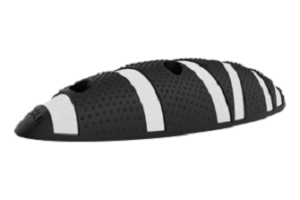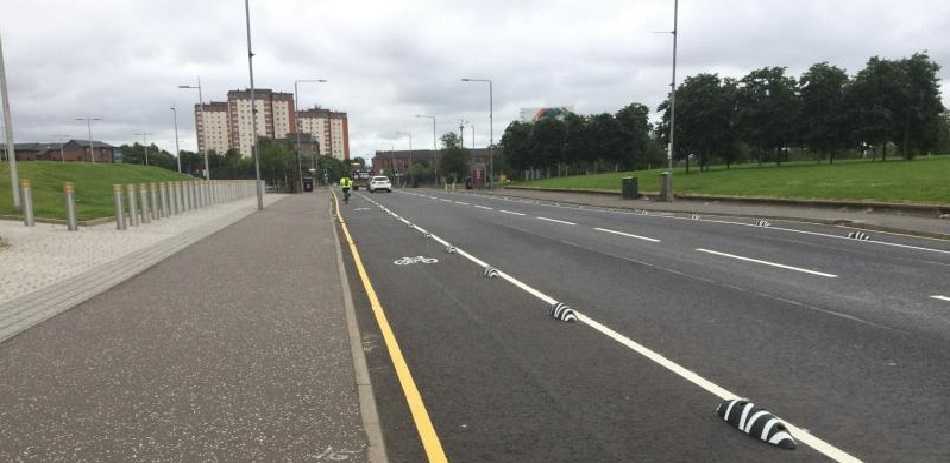| PROJECT NAME: | New cycle lane by the River Clyde |
| CITY: | Glasgow, Scotland |
| LOCATION: | Clyde Street and London Road |
| OPENING DATE: | July 2020 |
A movement based on redesigning streets for people has been gaining momentum around the world due to the COVID-19 sanitary emergency. In Scotland, several cities have decided to implement new travel infrastructures to better balance the needs of pedestrians, cyclists, transit riders and drivers. With these new infrastructures the safety has increased for all users and they contribute to create more vibrant and healthier communities.
Need and project objectives.
The COVID-19 emergency has put into evidence the need to reconfigure roads and pavements to give back urban space to provide extra space for pedestrians, mobility, wheelchair, and cycle users.
Different solutions have been used to create a short-term temporary travel infrastructure in the city centre, city neighbourhoods, active travel routes and it is expected that they will form a key part of the city’s strategy for economic recovery. These changes are hoped to be the catalyst to encourage sustainable travel as a viable long-term choice to benefit the economy, environment, health, and well-being.
The project carried out in Glasgow at Clyde Street and London Road is focused on adding:
- better signalling,
- high-visibility segregated cycle lanes and public art.
to make the pedestrian and transit-rider experience safer and more enjoyable.
The proposed solution.
The city of Glasgow has constructed a brand-new bike lane at Clyde Street and London Road. This cycle lane is a segregated one with buffer spaces, designed to create a safe barrier between motor vehicles and bike users. For the correct performance of the buffer space, the city officials have chosen the Zebra® 13 | Zero cycle lane separator.

Cycling advocates have praised the speed of installing the Clyde-side infrastructure.






